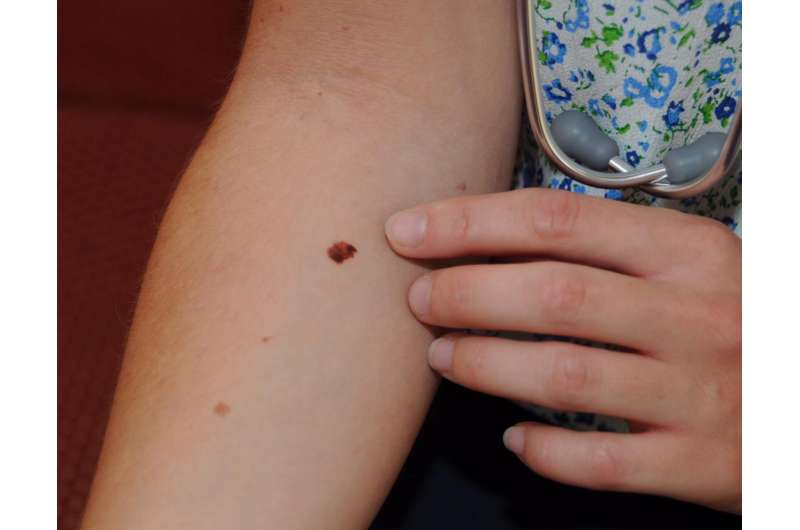Doctors gain a greater understanding of skin cancer using tattoos

Cancer is on the rise and the need to be empathetic when giving a patient their diagnosis and throughout treatment is imperative. Now, a collaborative study, with a Huddersfield professor, has enabled future doctors to experience some of the challenges patients living with skin cancer can face to develop a greater empathy for their patients.
Professor Nigel King is an Associate Dean of Research within the School of Human and Health Sciences and together with experts from Queen's University Belfast and University College Dublin, a study has been published in the British Journal of Dermatology that explores how temporary skin tattoos might influence a medical student's personal understanding of a malignant melanoma diagnosis.
Melanoma or skin cancer is the fifth most common cancer in the UK claiming over 2,500 lives every year. Over 15,000 patients will be diagnosed with melanoma cancer every year, a diagnosis that can be daunting for a patients and their loved ones.
Medical students from Queen's University Belfast were encouraged to wear a highly realistic temporary tattoo of a malignant melanoma for 24 hours before listening to an audio account of a patient sharing their experience of what it was like to discover a melanoma. They then recorded their own thoughts and experiences and took part in in depth interviews with experts.
Professor King's role was to contribute his methodological expertise to the design of the study and particularly the analysis of the interview transcripts and audio diaries. He said this relatively inexpensive simulation undoubtedly encouraged the students to consider the person behind the illness and enabled them to develop a greater empathy.
"For all of the students who took part it was a powerful experience," said Professor King.
"The melanoma temporary tattoo provided a profound experience because one thing you don't often realise until you have melanoma is, compared to other cancers and diseases, there is a physical sign of it. Meaning if you have it, you are constantly reminded you have got it," he said.
The British Journal of Dermatology said that while nothing can fully simulate the emotional impact of receiving a cancer diagnosis, this has been a novel way to help doctors understand what it feels like to have a visible skin disorder and how this can attract unwanted attention from strangers, leaving people feeling self-conscious.
Professor King and colleagues now hope to repeat the study with other groups such as nursing students to see if it achieves the same degree of positive response.
More information: M. Corr et al, Living with 'melanoma' … for a day: a phenomenological analysis of medical students' simulated experiences, British Journal of Dermatology (2017). DOI: 10.1111/bjd.15402





















